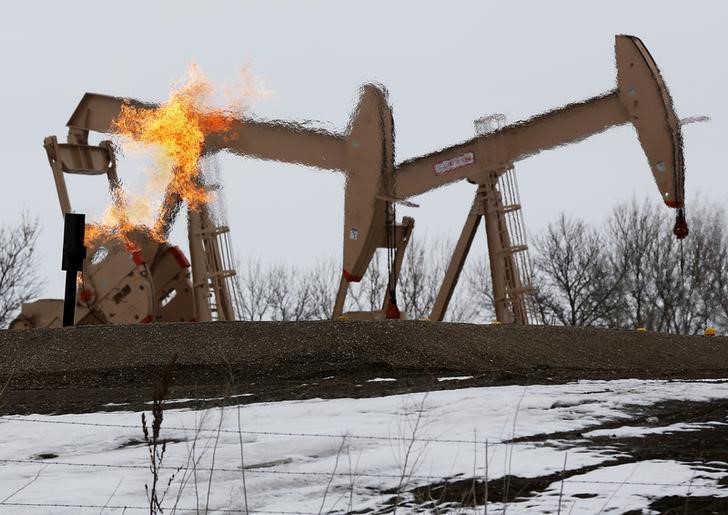Investing.com — Oil prices fell on Tuesday, retreating from a four-month high, triggered by new U.S. sanctions on Russian oil exports, even as worries about U.S. inflation eased.
At 08:45 ET (13:45 GMT), they were down 0.9% at $80.32 per barrel, and March maturing bonds were down 0.8% at $76.69 per barrel.
Dollar Eases After PPI Release
The U.S. dollar fell on Tuesday after rising less than expected in December, but still holding near a two-year high as the Federal Reserve grew more cautious about the prospect of rate cuts this year.
The PPI rose just 0.2% from December, data released earlier Tuesday showed, less than the expected 0.4% gain. On an annual basis it increased by 3.3%. lower than the expected 3.5%, but still up from 3.0% the previous month.
The most closely watched rate cuts will come on Wednesday, but the Fed has already forecast just two rate cuts in 2025, with officials expressing concern that inflation remains high.
When the dollar appreciates against other currencies, oil becomes more expensive for buyers using other currencies. This reduced affordability often dampens demand in non-dollar economies, putting downward pressure on global oil prices.
Commodities such as oil often attract speculative investment during periods of dollar weakness, leading to price increases. However, as the dollar strengthens, traders may turn to safer assets such as US Treasuries, reducing speculative demand for .
US sanctions could reach $90/barrel
Oil prices had risen in the previous two sessions, rising to a four-month high after the Joe Biden administration last week introduced its most sweeping sanctions package yet aimed at curbing Russian oil and gas revenues.
The latest measures from the US Treasury Department target major Russian oil producers, including Gazprom (MCX:) Neft and Surgutneftegas, as well as 183 ships involved in the transportation of Russian oil.
These developments are expected to significantly disrupt Russia’s oil exports, forcing major importers such as China and India to seek alternative suppliers in regions such as the Middle East, Africa and the Americas.
This shift raised concerns about tighter supply and the potential for increased demand from alternative sources. Analysts believe the sanctions could push Russia to price its crude below $60 per barrel to stay competitive, further affecting market dynamics.
“New sanctions could push Brent prices up to $90 per barrel for fast delivery,” Bernstein analysts said in a recent note.
Industry participants are closely monitoring updates from major producers, including OPEC+, on possible supply adjustments to stabilize markets during the winter surge.
(Ayushman Ojha contributed to this article.)


